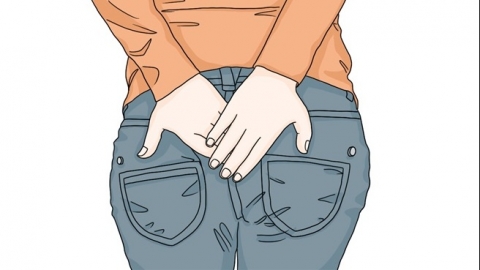What should I do if hemorrhoids keep recurring?
In general, recurrent hemorrhoids may be caused by an unreasonable diet, prolonged sitting or standing, chronic constipation, perianal infection, and intestinal dysfunction. It is recommended to seek medical attention promptly, identify the underlying cause, and improve the condition under a doctor's guidance through lifestyle adjustments, medications, and other treatments. Specific causes are analyzed as follows:

1. Unreasonable diet: Long-term consumption of spicy and irritating foods, along with insufficient dietary fiber intake, can easily lead to constipation and trigger recurrence of hemorrhoids. Adjust your diet by eating more fiber-rich foods such as celery, bananas, and oats, drink plenty of water, and avoid irritants like chili peppers and Sichuan pepper to reduce stimulation around the anus.
2. Prolonged sitting or standing: Occupations requiring long periods in the same posture can impair blood circulation around the anus, causing congestion in the venous plexus and leading to hemorrhoid recurrence. Get up and move for 5–10 minutes every hour of sitting or standing. Use a breathable cushion while working to promote blood flow in the anal area and relieve pressure on the veins.
3. Chronic constipation: When stool remains in the intestines too long, it becomes dry and hard, requiring excessive straining during bowel movements, which compresses the perianal venous plexus and leads to repeated hemorrhoid flare-ups. Follow your doctor’s instructions to use medications such as lactulose oral solution, polyethylene glycol 4000 powder, or wheat fiber granules to soften stools. Develop a habit of regular bowel movements and avoid straining.
4. Perianal infection: Poor anal hygiene can lead to bacterial infections. Inflammation may stimulate congestion and dilation of the venous plexus, triggering hemorrhoid recurrence. Wash the anal area with warm water after bowel movements and keep the area dry. Apply anti-inflammatory and swelling-reducing ointments such as Ma Yinglong Musk Hemorrhoid Ointment, Gangtai Ointment, or Yunnan Baiyao Hemorrhoid Ointment as directed by your doctor.
5. Intestinal dysfunction: Conditions like irritable bowel syndrome (IBS) cause alternating diarrhea and constipation, repeatedly irritating the anal mucosa and making hemorrhoids difficult to cure completely. Take medications such as Bifidobacterium triple viable capsules, Bacillus subtilis and Enterococcus faecalis viable granules, or Clostridium butyricum viable capsules as prescribed to regulate intestinal function. In severe cases, a procedure such as stapled hemorrhoidopexy may be performed to surgically reconstruct normal anal anatomy and reduce recurrence.
Maintain a regular daily routine and avoid staying up late to enhance overall immunity. Perform Kegel exercises regularly—30 repetitions per set, once in the morning and once at night—to strengthen the anal sphincter muscles. Wear loose, breathable cotton underwear and change it frequently to reduce the risk of perianal infection and lower the likelihood of hemorrhoid recurrence.




